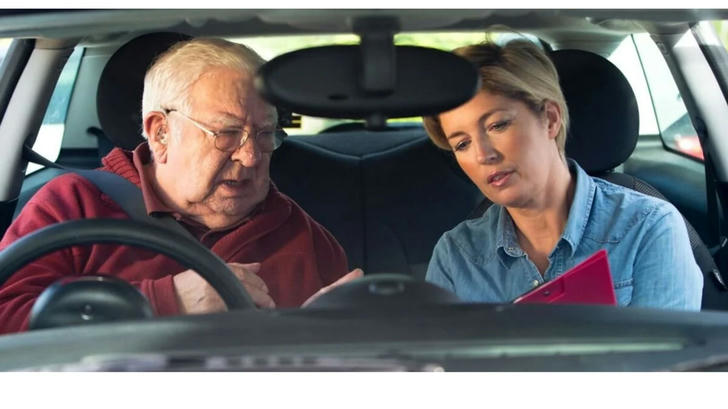Major Changes to Senior Auto Insurance Rules in the U.S. Coming in 2025
In 2025, significant changes are coming to driving licenses and auto insurance for seniors in the United States. These updates will affect millions of elderly drivers, and it's important to stay informed. From March 2025, certain senior citizens’ driving licenses will become invalid and non-renewable. Additionally, six key auto insurance regulations are set to change, directly impacting all senior drivers. Here’s what you need to know.

Introduction: Why These Changes Matter
For seniors, driving represents independence and freedom. However, as people age, safety concerns arise, prompting changes in both driving license regulations and auto insurance requirements. The new rules, effective in March 2025, are designed to ensure safety on the road and protect both seniors and other drivers.
New Driving License Regulations
Starting in March 2025, driving licenses for certain seniors will be affected. The following points outline the key changes:
Age Restrictions: Seniors aged 75 and older will be required to pass more stringent medical evaluations to renew their licenses.
Automatic Expiration: For those over 85, some licenses will expire and be deemed non-renewable unless specific conditions are met.
Vision and Cognitive Testing: Annual vision tests and cognitive assessments will become mandatory for seniors over 70 to ensure their capability to drive safely.
Increased License Renewal Frequency: Drivers over 65 will need to renew their licenses more frequently—every two years instead of five.
Restricted Licenses: In some states, seniors may receive restricted licenses limiting driving to daylight hours or specific regions.
Mandatory Driver Training: Drivers over 75 may be required to attend defensive driving courses before license renewal.
These new regulations aim to protect senior drivers by addressing common age-related challenges like declining vision and slower reflexes.
Six Major Auto Insurance Changes for Seniors
Along with the driving license updates, significant changes are coming to auto insurance policies. Here’s a breakdown of the six changes that will impact senior drivers:
| Rule | Key Changes & Requirements | Impact on Seniors |
|---|---|---|
| 1. Premiums for 75+ | Age-based rate adjustments | Requires annual risk assessment | 15-40% cost increase |
| 2. Telematics Devices | Install tracking devices (speed/braking/mileage) | Mandatory for policy renewal | Discounts up to 30% for compliance |
| 3. Low-Mileage Plans | Drivers under 5k miles/year | Cheaper plans but no comprehensive coverage | Savings up to $200/year |
| 4. Medical Reporting | Disclose epilepsy/diabetes | Non-disclosure voids claims | Policy cancellation risk |
| 5. Accident Forgiveness | No 'first accident' perks after 70 | Applies to all new policies | Higher out-of-pocket costs |
| 6. Ride-Sharing Exclusion | Personal policies exclude Uber/Lyft | Requires commercial coverage | Additional $500/year for rideshare |
How Seniors Can Prepare
With these changes on the horizon, it’s important for seniors to be proactive. Here are some steps they can take to adjust to the new rules:
- Review Insurance Policies: Seniors should contact their insurance providers to understand how the new rules will affect their premiums and coverage.
• Identify coverage gaps (e.g., ride-sharing, low-mileage discounts).
• Use tools like Policygenius or The Zebra for quick comparisons.
- Explore Telematics Programs:
• Progressive’s Snapshot and Allstate’s Drivewise offer up to 30% discounts for safe driving.
Enroll in Safe Driving Courses: Completing defensive driving courses can not only improve safety but also reduce insurance premiums.
Plan for Higher Costs: Budgeting for increased premiums and potential out-of-pocket expenses is key, especially for those on fixed incomes.
Consult State Regulations: Seniors should stay informed about specific changes in their state and how it might affect their driving and insurance options.
Schedule a DMV Appointment Early:
• Renew your license 6 months before expiration to avoid backlogs.
• Bring medical records if you have conditions affecting driving.
Frequently Asked Questions (FAQs)
Q: Will my driving license expire automatically if I’m over 75?
A: No, licenses will not expire automatically. However, seniors over 75 will need to pass medical and vision exams more frequently to renew their licenses.
Q: How will these changes affect my insurance premiums?
A: Starting in 2025, insurance premiums for seniors over 70 may increase by around 10%. However, safe driving programs and telematics devices can help reduce costs.
Q: Can I still get full coverage if I’m over 80?
A: Some insurers may limit coverage for seniors over 80, especially those with a history of accidents. It’s important to shop around and compare policies.
Q: How do I qualify for safe driving discounts?
A: Enroll in a state-approved defensive driving course or install a telematics device that tracks your driving habits. Contact your insurance provider for details.
Conclusion
The changes to senior driving license rules and auto insurance policies in 2025 mark a significant shift in how elderly drivers are viewed and insured. By understanding these new rules and making the necessary preparations, seniors can continue to enjoy the freedom of driving while ensuring they are adequately protected.
